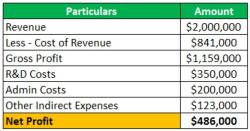Can a bank close your bank account without tell?
Yes, a bank can close your bank account without prior notice under certain circumstances. Banks typically have the right to close an account as outlined in their account agreements and terms and conditions. While the specific reasons for account closure may vary between banks and regions, some common reasons for a bank to close an account without notice include:
Suspicious Activity: If a bank detects suspicious or fraudulent activity on an account, it may close the account immediately to protect the account holder and the bank itself from potential financial losses.
Failure to Comply with Bank Policies: Banks have policies and terms of service that account holders must adhere to. If you violate these policies, such as repeatedly bouncing checks or not maintaining the required minimum balance, the bank may close your account without notice.
Account Inactivity: Some banks may close accounts that have been inactive for an extended period, usually after attempts to contact the account holder have been unsuccessful.
Government Orders: In some cases, government authorities may order a bank to close an account due to legal issues, such as money laundering investigations or sanctions compliance.
Risk Assessment: Banks conduct ongoing risk assessments of their customer base. If your account is deemed to pose a high risk for money laundering, fraud, or other illegal activities, the bank may close it without notice.
Business Decisions: Banks may also make business decisions to discontinue certain types of accounts or services. While they may provide notice in some cases, they may close accounts without notice if they decide to exit a particular line of business.
It's important to note that banks are typically required to provide a notice of account closure in most circumstances, particularly if there is a balance in the account. The notice period and the method of notification can vary by jurisdiction and bank policy. Additionally, funds in a closed account are typically returned to the account holder or sent to the last known address.
To avoid sudden account closures, it's essential to review and comply with your bank's terms and conditions, maintain open communication with your bank, and promptly address any issues that arise. If your account is closed without notice and you believe it was done unjustly, you can contact the bank to seek clarification and potentially appeal the decision or transfer your funds to another institution. Legal regulations governing account closures can also vary, so it may be wise to consult with a legal professional if you believe your rights have been violated.
Bank Account Closure Without Notice: Understanding the Possibilities
In general, banks may close accounts at any time and for any reason. This is because banks have a contractual relationship with their customers, and the terms of that relationship typically allow banks to close accounts without notice.
However, there are some exceptions to this general rule. For example, banks may be required to give notice before closing an account in certain cases, such as if the account is overdrawn or if the customer has violated the bank's terms and conditions.
Reasons Why a Bank May Close Your Account
There are a number of reasons why a bank may close your account, including:
- Inactivity: If you do not use your account for an extended period of time, the bank may close it due to inactivity.
- Negative balance: If your account goes into a negative balance, the bank may close it.
- Suspicious activity: If the bank suspects that your account is being used for fraudulent or illegal activity, they may close it.
- Violating the bank's terms and conditions: If you violate the bank's terms and conditions, such as by bouncing checks or overdrawing your account too many times, the bank may close your account.
Protecting Your Banking Relationship and Addressing Closure Concerns
To protect your banking relationship and avoid having your account closed without notice, there are a few things you can do:
- Use your account regularly: To avoid having your account closed due to inactivity, it is important to use it regularly. This could involve making deposits and withdrawals, using your debit card, or writing checks.
- Keep your account balance positive: To avoid having your account closed due to a negative balance, it is important to keep your account balance positive. If you do overdraw your account, be sure to repay the overdraft promptly.
- Be aware of the bank's terms and conditions: Read and understand the bank's terms and conditions so that you know what is and is not allowed. If you have any questions, be sure to ask a bank representative.
- Monitor your account activity regularly: Review your account statements regularly to identify any suspicious activity. If you notice any suspicious activity, report it to the bank immediately.
If you are concerned about your bank account being closed without notice, you can contact your bank and ask about their policies. You can also ask about any steps you can take to reduce the risk of your account being closed.
It is important to note that even if you take all of these steps, there is still a chance that your bank may close your account without notice. However, by following these tips, you can reduce the risk of this happening.












